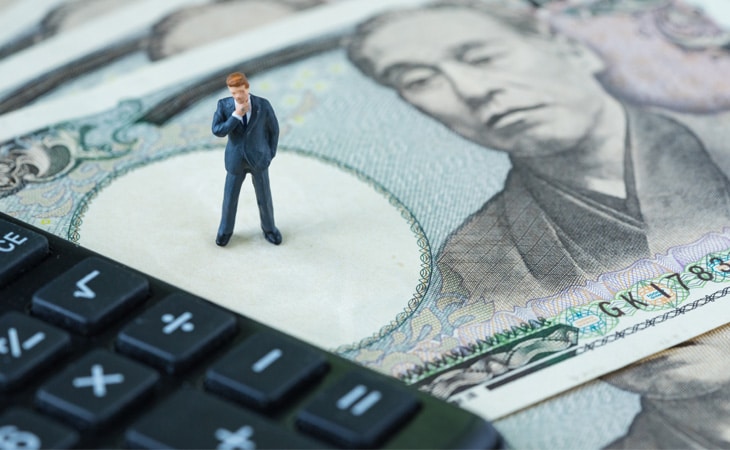For expats living abroad, navigating the ins and outs of the pension plans of the countries where they reside can be challenging, and Japan is no exception. With this in mind, we’ve written this brief guide to hopefully make this topic a bit less confusing for those living and working in Japan for a short while or the long haul.
Types of Pensions Under the Japanese Pension Scheme
The pension scheme in Japan can be divided into two, and both are collectively called the Public Pension System.
- The National Pension Scheme
- The Employees’ Pension Insurance System (EPI).
The National Pension Scheme
The National Pension Scheme is a compulsory premium levied on all persons who have a “jusho” (residency) in Japan regardless of nationality and are between 20 to 59 years of age. The national pension scheme has a fixed monthly contribution of ¥16,610.
As an expatriate, it is important to note that you can apply for an exemption if it is financially challenging to contribute this amount for a particular period. However, specific criteria must be met for this exemption request to be granted. For instance, being an international student, earning a low income, and being unemployed are some conditions that can exempt an expatriate from paying the compulsory national pension contribution.
The categories of people insured by the National Pension Scheme can be divided into three:
- Category 1: The self-employed, students, and those not in categories 2 and 3.
- Category 2: Civil servants, company employees, and those covered by the Employee’s Pension Insurance (EPI) System.
- Category 3: Dependent spouses of those in category 2.

Employee’s Pension Insurance System (EPI)
If you are a full-time employee, you are likely enrolled in The Employee’s Pension Insurance System.
In this pension system, the employer and the employee pay half the contributions. The contribution amount is not fixed and depends on the employee’s salary. So, the more you earn, the higher the contributions your company and you will need to make.
The implication of the employee’s pension insurance system on expatriates working in Japanese companies (under the mandatory EPI regulations) is that they have to pay both the national, and the employee pension insurance premiums.
Different Forms of Pension Available to Eligible Expatriates
Besides providing an income in retirement, the Japanese Pension System also provides the following two benefits:
- Disability pension, where the expat receives a certain amount of money in case of disabilities.
- Survivor’s pension, where an expat’s family will receive a certain amount of money if the expat dies.
Is The Japan Pension Scheme Compulsory for Expatriates?
The answer to this question is quite simple: yes. In Japan, it is compulsory for everyone residing in Japan between the ages of 20 and 59 to join the pension system.
How Much Do You Have to Contribute as Pension and How Much Will You Get Back?
The contributions to the National Pension Scheme are the same (¥16,610 per month) for everyone, regardless of income. The pension benefit is thus also the same for everyone: ¥781,700 per year (as of 2022). Of course, this assumes you’ve paid into this system for 40 years.
For the Employee Pension Insurance, on the other hand, the amount you and your company will contribute depends on your income. Thus, the amount you will receive after retirement will vary from person to person.
Calculating how much you will receive after retirement can be complicated when variants such as early retirement, late retirement, childcare, unemployment, or self-employment are considered. However, the standard calculation is:
(0.55%) x (Average annual salary) x (Number of years in employment)
To give you a rough idea of what you can expect, an individual who worked for 40 years and had an average salary of ¥10 million throughout that time will qualify for an approximate annual pension of ¥3 million. The total pension is calculated in the table below.
| Pension Type | Calculation | Pension Received |
|---|---|---|
| National Pension Scheme | ¥20,000 x 40 years | ¥0.8 million |
| Employee Pension Insurance | 0.55% x 40 years x average income (example ¥10million) | ¥2.2 million |
| Total | ¥3.0 million |
But How Much Will I Get Back?
How much the people who will retire in the next two to three decades will receive is the big question mark. However, there is a general understanding within the people of Japan, both native and foreign, that the Japanese pension system will be able to sustain itself in the coming decades.
Like other national pension schemes, the Japanese pension system works hierarchically: the premium paid by the working population is paid to the retired population. Thus, it can be inferred that the Japanese pension system operates as a “financial intergenerational support mechanism.”
When we consider that the Japanese population has already peaked and is now in a steady decline, while at the same time the proportion of retired and elderly is continuing to grow, we can see that the Japanese Pension System faces many challenges in the years ahead as it will likely struggle to maintain benefits.
Likely, future retirees who are now contributing to the system will not receive the same benefits their older counterparts are currently getting. Unfortunately, common “solutions” to this problem are raising the already high burden on the people contributing, delaying the retirement age, lowering benefits, or printing money.
You may want to think twice if you believe that the National Pension System will care for your needs in retirement. To ensure a comfortable retirement, you must do some personal retirement planning to supplement the government pension.

Conditions for Receiving Pensions in Japan
To qualify for pensions in Japan, you must be 65 years old and have paid the Japanese national pension contributions for at least ten years. Failure to meet these conditions will lead to non-payment of the pension funds.
It is noteworthy that the full basic pension benefit requires 40 years of contribution. However, if you have paid the national pension contribution for a minimum of 10 years, your pension benefits will be adjusted based on how long you contributed.
How Does the Japanese Pension System Affect Expatriates?
The truth is, many expats may already pay pension contributions in their home countries, making the payment of extra premiums a substantial financial burden. Additionally, most scenarios challenge expatriates to meet the eligibility criteria for receiving their pensions. Moreover, they may even leave before completing ten years which is the minimum number of contribution years required before receiving their pension funds.
To prevent expatriates from losing their pension benefits, the Japanese government has two structures in place, namely:
- The social security agreement
- The lump-sum withdrawal system
The social security agreement is a bilateral agreement between the Japanese government and the expatriate’s home country whereby the expatriate can join the payment of the pension premium of his home country with that of Japan. This agreement is for an expatriate who will not be staying in Japan for up to 10 years.
Using the lump-sum withdrawal system, an expatriate enrolled in the Japanese public pension scheme can withdraw a certain amount of the paid pension premium when leaving Japan. An expatriate who wants to request a lump-sum withdrawal must file a lump-sum withdrawal form within two years after registering to leave Japan. Please read our article on this topic here to learn more.

Final Thoughts
Japan has built a solid social safety net through its national pension plans, and it has served the country’s population well up while Japan’s population was growing. However, the viability of such programs will likely see difficult times ahead with a shrinking and rapidly aging population. This means that individuals will need to take on more responsibility for providing for themselves in retirement.
National pension systems are generally not advantageous to expat professionals who plan to live and work in different countries throughout their careers. Moving from country to country every few years makes it difficult, if not impossible, to qualify for any pension benefits in any country. Mobile professionals are generally compensated with higher incomes to offset these disadvantages.
Regardless of whether you do plan to stay in Japan long enough to enjoy the full benefits of the Japanese pension or you plan to move from place to place, the reality is that no national pension system is likely to cover your entire retirement needs and enable you to have a happy, fulfilling post-work life. Nowadays, national pensions only ensure people are not entirely destitute in their older age. Still, you shouldn’t expect to be living large on any country’s pension system.
It is each person’s responsibility to secure their financial future themselves. You will need to plan for your happy financial independence, not counting only on any national pension but perhaps including it as part of the overall plan. This means having private retirement plans and investments to cover the likely significant shortfall.
We have a simple online retirement calculator you can use to get a general idea of how much you might need to save for your retirement or financial independence goals. We’ve included it below for your convenience.
Retirement Saving Calculator
Current projected savings
Retirement savings needed
This is the total amount you should be contributing each month including your current monthly contribution.
Ready to talk about your retirement?
Book a free consultation with us today
If you are worried about your retirement, contact us for a free initial consultation. Argentum is Japan’s premier licensed financial planning firm serving the expat community. We provide advice on portable and tax-efficient private retirement plans designed for the modern mobile workforce. We’d be happy to help you get started on a fulfilling financial future.
Argentum Wealth does not provide tax, legal or accounting advice. This material has been prepared for informational purposes only, and is not intended to provide, and should not be relied on for, tax, legal or accounting advice. You should consult your own tax, legal and accounting advisors before engaging in any transaction.
Argentum Wealth Management is licensed through the Japanese Financial Services Authority to give financial advice. The FSA strongly recommends that you only receive financial advice and services from a locally licensed and regulated firm.



